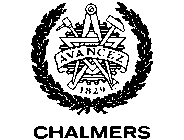The water-smart society’s system for recycled water
The Swedish water supply system is mainly designed to use high-quality drinking water for many needs, from industry and agriculture to toilet flushing and irrigation.
About the project
This system has historically worked well, but is challenged due to increasing loads on the water and wastewater infrastructure, the effects of climate change and deteriorating raw water quality. Larger variations in water levels and difficulties in expanding water extraction from existing resources have led to water shortages in several municipalities, especially during the summer months.
The project addressed these challenges by investigating the potential of recycled water – such as treated wastewater, stormwater and greywater – as well as alternative water sources such as surface water. New business models, policy changes and development of infrastructure are central components to enable system change. The project aimed to describe technical, economic, cultural and legal obstacles and opportunities to create a system change for efficient and safe recycling of water.
Three geographical areas – Skåne, Gothenburg and Uppsala – served as example regions where various local initiatives, solutions and applications formed the basis of the work. The project was led by RISE (Research Institutes of Sweden), Sweden Water Research and Chalmers University of Technology. The project group included leading actors in Sweden, which gave us the opportunity to discuss issues at the forefront of development. The broad stakeholder group in the project was bringing together users, enablers and solution owners to contribute the necessary pieces of the puzzle in the development.
The project was a prestudy granted through Water Wise Societies’ first call Samverkan för Hållbart vatten för alla 2050.
Results
The project has brought together a broad group of stakeholders in Sweden who have jointly explored and defined the desired future state, the need for change, and the actions required to achieve transformation. The results have been compiled in a report (in swedish). Long-term changes that make it easier to provide and use recycled water will be achieved through follow-up projects, for example those aimed at developing national supportive guidelines for the safe delivery and use of recycled water, improving water supply planning to include alternative water sources, and developing methodologies to assess under which conditions water recycling is advantageous.



















